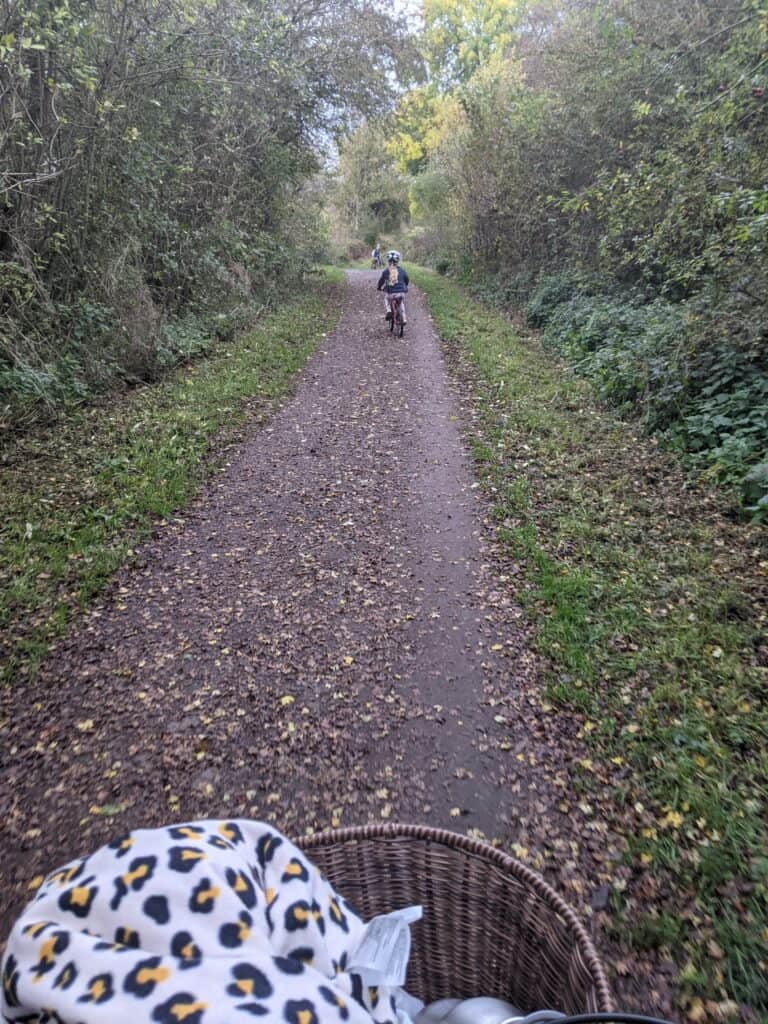Table of Contents
Back in March 2021, we decided to become a one-car family. For all our time together we’ve always had a car each but circumstances change, life evolves and your aspirations move in a different direction.
As a family, this decision was a couple of years overdue. Neither of us commuted for work regularly, the second car was rarely used (1000 miles a year) and even when used it was purely chosen to keep the engine ticking over.
From a convenience perspective, two cars will always triumph however the cost of car ownership is high even if you take away the cost of the car.
We are a little over 6 months into our one-car living journey and on a whole, it’s been plain sailing. One car ownership has also brought additional benefits we didn’t initially see when making the decision. Like every decision, there’s a tradeoff and sometimes, yes we’d still like to have two cars. But while having two cars would sometimes be a luxury the overall need for two is unnecessary.
Let’s dive into the pros and cons of becoming a one-car family and see if it works for you.
The Pros:
Financial:
No Car Tax, Insurance, Servicing & MOT:
There’s a number of moving parts to car ownership and across two vehicles it can become expensive.
Nimble Fins have an average cost of car ownership at £3000 a year. Some of the costs in their table don’t apply to my specific ownership but it does highlight nicely the cost of owning a car; especially for those who purchase newer cars.
Our second car was a 2013 VW Polo so it had already hit a number of depreciation milestones however I estimated an annual cost of between £600-800 across Tax, insurance, servicing and MOT. Although not a huge figure it’s significant when you spread across two cars and take into account newer (more expensive) vehicles.
Selling A Depreciating Asset:
As mentioned above my car was a 2013 VW Polo so it had lost a high amount of its value. My car however had hardly been driven and clocked just 30,000 miles. Although the depreciation had slowed it was still a depreciating asset that was largely redundant.
When it came to selling the car made approximately £5,000. This was 5 whole grand sat on my driveway which I had to drive every so often to keep ‘ticking over.’ Certainly more of a chore than a pleasure.
Having sold the car the money was immediately invested into Low-cost index funds via Vanguards investment ISA. If you look at the annualised return of the stock market over the past 50 years you will see an adjusted for inflation figure of 6.8%. I’ll be growing my money instead of eroding it.
Health & Wellbeing:
Alternative modes of transport:
When having just one car you have to manage who uses the car when. Sometimes there will be clashes but that’s typically eradicated utilising alternative modes of transport.
I can typically get anywhere within a 5-mile radius on my bike. A recently had a walking meeting with a local friend followed by a flu jab appointment 3 miles away. I cycled to both. I know for a fact before when we had two cars I would have jumped in the car. The mindset shift of having one car means you automatically choose the bike over the car; even if the car is available. Need to get some additional food from the shops? I take my bike. Need to get my hair cut? I cycle down and park outside.
You become creative in how you travel and the upside of this is you get fitter as a bi-product.
Walking to school:
We live approximately 0.7miles away from school but to this day have always walked. I believe this is a mindset shift. So many of our friends drive their children to school; sometimes enduring 60 minutes of travel time a day! This feels not only inefficient but also has a real negative impact on your wellbeing.
Given we’ve always walked to school our children are used to all weather conditions (no such thing as bad weather right?), are strong walkers and enjoy the time to talk to us about the day ahead. From a health and well-being perspective, the adults are walking around 15 miles a week whereas the children are walking 7.5 miles a week.
Environmental factors:
Less Pollution:
Having just one car means there’s less road usage, less pollution which reduces the environmental impact of vehicle usage.
Coupling this with making positive lifestyle choices (walking, cycling) the overall impact this has on the environment in the long term is vast.
Cars are an eyesore:
When we moved to the property we had two cars and although the drive was ‘just’ big enough to accommodate both it was a squeeze. As a result, we parked one on the roadside. At one point we considered extending the drive to accommodate another car. The thought of PAYING thousands to accommodate a car feels wild now looking back.
Since we only have one car we now have this nicely positioned on the drive. When I compare this to some of the houses which have 3,4 & 5 cars (sometimes more than house occupants) it’s really great to see.
The Cons:
Where you live has a huge bearing on whether you can operate as a one-car family. Obviously, if you live out in the sticks it may not be a viable option. Alternatively, if commuting is part of your job it may not be possible but I imagine you wouldn’t be reading this article if that was the case? For those with a lifestyle that would allow a move to just one car, there are some downsides. Do these downsides outweigh the pros of the transition? I’ll let you decide.
Longer distance work requirements:
I largely work from home meaning my need for the car is small however I occasionally need to visit the office of the business I co-own which is over 40 minutes away. This is VERY rare in our circumstances and I usually plan ahead to work around any issues which may arise.
If as a family both parents work full time away from the home then having one car can be a challenge however with the rise in remote working since the Covid outbreak this should be a possibility for millions of families across the country.
After-School activities:
Our children are currently 5 and 1 so at the moment in time, only our eldest has sports clubs outside of school time. I imagine as both children are of an age when these are a possibility it could be more tricky.
When choosing where to live as a family we chose a suburb with plenty of activities on the doorstep. Football, Rugby and Dancing clubs are all within walking distance (or a short drive) meaning things could be planned carefully.
We also chose a school with a number of after school clubs (Pre covid :() which means activities would be in the same place; all within walking distance of the family home.
Car Maintenance & Servicing:
All cars need to be serviced once a year and if anything goes wrong with the car it could be more than that. When the car is in the garage for its annual service you will be car-less. Of course, the day of the service is planned so you could easily rent a car for this day if having one car was non-negotiable. Most would get by with careful planning and making sure it’s booked in on a day where you don’t really need the car.
We also choose a local garage and walk home from the garage. If this isn’t an option then you could easily grab a taxi or public transport to make it home.
Partner Away with the car:
As a family, we tend to spend pretty much all of our weekends together however there’s the occasional time when one of us is away. My wife was recently away and had to take the car and I was at home with the kids. Usually, I would do the half-hour drive to my parents’ house and spend the day with them.
Without the car, I had to do things locally. In the end, my parents actually just came to my house so it wasn’t an issue at all however it’s a change of habit and routine.
Summary of when one car works:
Becoming a one-car family doesn’t work for everyone and there are many situations where it’s difficult to go without a second car. I do however believe it’s possible for many more families. There are huge benefits and the upsides really do outweigh the hard to avoid downsides.
Here are some topline bullet points of the type of living scenarios where I believe a one-car option is possible.
- Work from home or short commute (bike/walking-friendly).
- Well connected, suburban area.
- Walkable neighbourhood.
- Enjoy cycling as an alternative means of transportation.
- Ability to plan ahead or change plans.
Are you a one car or two car family (heck maybe even three!). What influences your decision? Drop me a comment and let me know!

